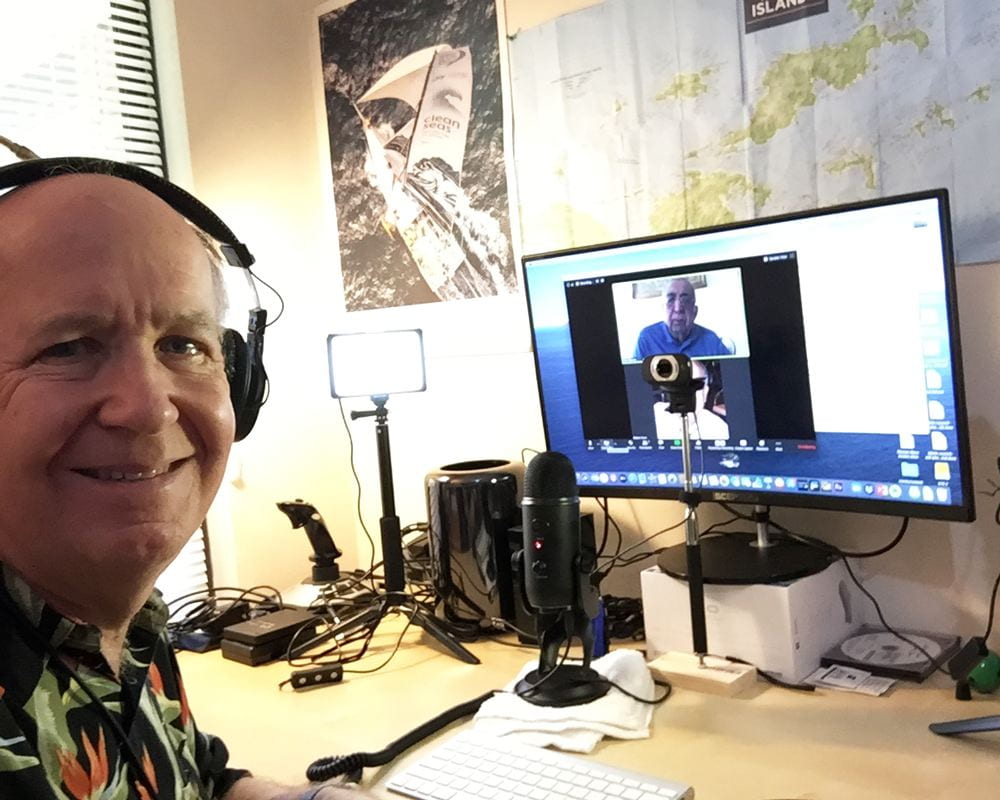When a crisis hits, the faithful turn to their leaders, their communities and their religious teachings and scriptures for guidance and strength. While common themes emerge, each faith tradition has its own unique approach to the crisis.
To explore how various faith traditions are responding to COVID-19, Robert Hunt, director of Global Theological Education at Perkins, launched the “Interfaith Encounters” podcast.
For the inaugural season series, COVID-19 and Faith Communities, he spoke with local leaders of the Islamic, Sikh, Jewish, Christian, Hindu and Buddhist traditions about how their communities are coping and how the teachings of their traditions inform their response. Listeners can find the podcasts at interfaith-encounters.simplecast.com. Each podcast runs about 20 minutes. Future seasons will focus on other current social issues.
“It’s only when we understand what we are each going through that we can be mutually supportive and find ways to work together for society,” Hunt said.
As an example, Hunt said, he discovered that the Jewish community maintains a kosher food bank for those who keep kosher in the Dallas area. Similarly, Muslims facing food insecurity might need access to halal foods, and strict Hindus might require vegetarian food.
Hunt added that religious communities have different obligations for people who are dead or dying, so it’s important to ensure provision for those needs in hospitals and in chaplain services.
For the podcast, Hunt asked all of the faith leaders to address the same questions, including: What do we need to understand about how your community is responding to, and affected by, the pandemic? Are there times when the current shelter-in-place restrictions are particularly difficult? Are there ways that the broader community can be supportive? How is the response of your community rooted in your scriptures and traditions? What are important things that people of different religions can do together during this time?
Finally, Hunt asked: What does your religious tradition tell us to learn from a crisis like this?
That elicited a broad spectrum of answers, ranging from the extremely pragmatic (“Obey the authorities”) to the very spiritual (“Life is transient, and it’s important to have a relationship with our creator”).
“The one theme that emerged very quickly from the people I’ve interviewed was the need to be supportive of social distancing and to follow the science and to be compliant to what the authorities ask us to do,” Hunt said.
In the first episode, Azhar Azeez, past president of the Islamic Society of North America, noted that all area mosques are shut down and all have converted their worship services to online platforms. Many miss the weekly Friday sermons and prayer services – a key aspect of Muslim communal life – but faith leaders have explained the dangers of gathering in large groups, via webinars and other outlets. In addition, Azeez said, some 80,000 Muslim doctors and nurses are currently serving on the front lines in the United States, and many have lent their expertise to the education effort. The Fiqh Council of North America issued a joint statement explaining why mosques should remain closed during the shelter-in-place period and provided a scriptural rationale, composed by a dozen prominent Islamic scholars in the United States and Canada. Several passages in the Qu’ran depict instances of sheltering-in-place during a time of pestilence.
The programs are being released on the following schedule:
- April 21: Islam, with Azhar Azeez, past president of the Islamic Society of North America
- April 24: Vendanta, with Pravrajika Brahmaprana, resident minister of the North Texas Vedanta Society
- April 28: Sikh, with Harbhajan Singh Virdee, the Sikh Gurdwara of Irving, Texas
- May 1: Jewish, with Rabbi Bentzi Epstein, Dallas Area Torah Association
- May 5: Christian, Methodist, with the Rev. Dr. Michael Waters (D.Min. ’12, M.Div. ’06) of Abundant Life AME
- May 8: Buddhist, with Dr. Jon Reid of the International Buddhist Progress Society
- May 12: Church of Jesus Christ of Latter-day Saints, with Mark Romney, Elder
- May 15: Hindu, with Mr. S. P. Krishnamurthy of the DFW Hindu Temple Society
- May 19: Christian, United Methodist, with Bishop Michael McKee (M.Th. ’78) of the North Texas Annual Conference, UMC
Hunt’s connections to the interviewees stemmed from his work as an organizer of many interfaith events on the SMU campus and as a leader in inter-religious and multifaith dialogue in Dallas through Faiths in Conversation of Thanksgiving Square, the Dallas Institute and Faith Forward Dallas of the Interfaith Council of Thanksgiving Square.
